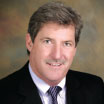

Dr. O'Connor is Chairman of the Cancer Program at St. John's Regional Medical Center and has been named one of the "Best Doctors in America: Pacific Region". A specialist in Image-Guided Radiation Therapy (IGRT), Dr. O'Connor is committed to advanced technological treatment and giving compassionate care.

A Ventura County native, Dr. Montes is fluent in Spanish and the recipient of many honors and awards, including the "Celebration of Excellence Award" from The Wellness Community – Valley/Ventura. Dr. Montes provides high-level care to cancer patients and specializes in the most advanced treatments for prostate, breast and skin cancer.

Radiation therapy to the head andneck area may increase your chances of mouth infections and tooth decay. Be sure your dentist and radiation oncologist talk to each other about the best care for your teeth. Careful brushing and rinsing daily with a salt and baking soda solution are helpful. Biotene products also help with dry mouth, and are available online and at local drug stores.
Get plenty of rest during treatment, eat a nutritious diet (usually up to 2500 calories per day), and drink plenty of fluids. Tell your doctor about any medications or vitamins you are taking, to make sure they are safe to use during radiation therapy.
Keep your skin out of the sun, avoid hot or cold packs, and only use lotions and ointments after checking with your doctor or nurse.
1) What tests will they do to find out the extent of the cancer?
The initial tests usually performed are PET-CT scans, MRIs and other
radiology exams. These tests will be done to assist in planning the
course of your treatment.
2) Will this be painful?
Radiation in the mouth and throat areas can cause discomfort and
pain when swallowing. We will stay closely in touch with you regarding
the progression of your discomfort and will give you different levels
of pain medication as needed.
3) When can I return to work?
Usually around 3-6 months after completion of radiation therapy,
remembering that every individual is different.
4) What are the worst side effects?
Difficulty and pain with swallowing, leathery skin, and fatigue due to
new cells regenerating.
5) What tests will they do so that they know they got all the cancer?
The follow-up test is usually the same one you had to determine the
extent of your disease and plan for radiation. This is performed after
your radiation therapy is completed and will help in determining the
effectiveness of your treatment.